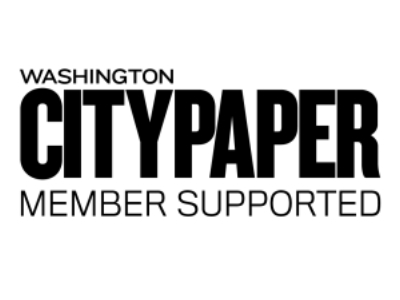If you crave good films, compelling stories, and a challenge, Reinaldo Barroso–Spech, the co-founder of the African Diaspora International Film Festival, promises there’s something for you at the 17th annual event taking place Aug. 2 to 4.
“We don’t want to feel that you’re being insulted or disrespected, but we want to challenge you,” says Barroso-Spech. “We want you to think, because there’s a strong central mission and value in films and we want to expose people to that.”
The three-day festival, founded by New York-based husband and wife team Barroso-Spech and Diarah N’Daw–Spech, uses film to promote a deeper understanding and appreciation of the Black diaspora’s cultural richness. The founders say this helps counter stereotypes and transform attitudes that perpetuate injustice, while also educating viewers about the commonalities shared between Black people from across the globe. This year’s festival boasts a lineup of 17 independent fiction, documentary, and short films from nine countries: Brazil, Cuba, Kenya, Guinea-Bissau, France, Jamaica, Suriname, Tunisia, and the United States, including a debut from producer-director Magdalena Albizu, a longtime attendee of the festival.
Being included in this year’s festival has been a joy for the Long Island native, who credits the annual event for amplifying the breadth and depth of the African diaspora.
“It allows people to see our stories, to see diverse stories,” Albizu says. Her documentary NEGRITA, which screens on Aug. 3, explores colorism among Afro Latinas in the United States. “A lot of times, especially in this country, people think Black people are a monolith—that we only have one story and that’s slavery and that’s it.”

The festival was founded in 1993 after Barroso-Spech (who is Afro Cuban), and N’Daw-Spech (who is Afro French) traveled to film festivals around the world and found a dearth of stories about the African diaspora—let alone ones interested in uplifting and improving lives for those who make up the diaspora. The couple took the lack of representation personally and decided to address it with their own festival.
The first African Diaspora International Film Festival took place in New York City and was a success. Though it still takes place in New York, Barroso-Spech and N’Daw-Spech have brought it to other cities over the years. Currently, the festival also screens in Chicago and Paris; previous tour stops have included Willemstad, Curaçao, and Geneva, Switzerland. The founders brought the festival to D.C. in 2006 with the help of TransAfrica, an influential lobbying organization that, before closing in 2014, represented Africans and the African diaspora.
“The work of TransAfrica [widely credited with pushing the U.S. to confront South Africa’s apartheid regime] was very much on a pan-Africanist note, so we went to them and asked if they could host, if they could be of help to bring the film festival to D.C.,” Barroso-Spech says. “They said yes … and the rest is history.”
Charles Uwagbai, an award-winning director behind Kipkemboi, which screens on Aug. 4, learned about the festival from his film’s American distributors.
“A lot of times when we see African stories, it’s always some negative story of war and hunger, but this is a positive story, because it shows Africans in a different light,” says Uwagbai regarding his film. Kipkemboi, which was renamed The Wall Street Boy, Kipkemboi for an U.S. market, is a family-friendly action drama about a young math genius from rural Kenya who develops a groundbreaking stock market algorithm.
“[Kipkemboi] shows them as intelligent people, as a community, as progressive people. The main character is from a small village in the highlands in Kenya, but he’s still able to invent this thing that changes his world and changes the whole world in general,” says the Nigerian Canadian filmmaker.
The film, Uwagbai says, shows African youth that they can make a difference in the world. He’s excited to get it in front of an audience that enjoys Black art, because he knows it will inspire him to become an even better artist.
“When you’re telling Black stories, you want to reach out to the people that matter the most and want to see your story,” says Uwagbai. “I feel like [African Diaspora International Film Festival] is a platform that will do justice to [Kipkemboi], reaching the right audience.”
The African Diaspora International Film Festival runs Aug. 2 through 4 at the George Washington University Student Center. adiff-dc-24.eventive.org. $13–$120.

